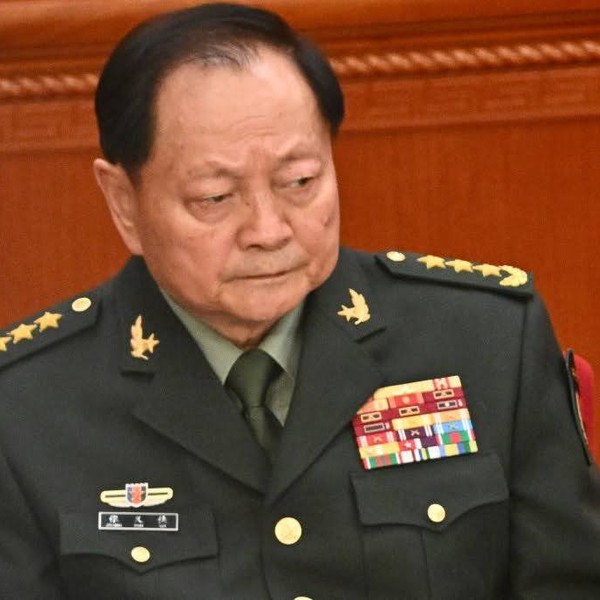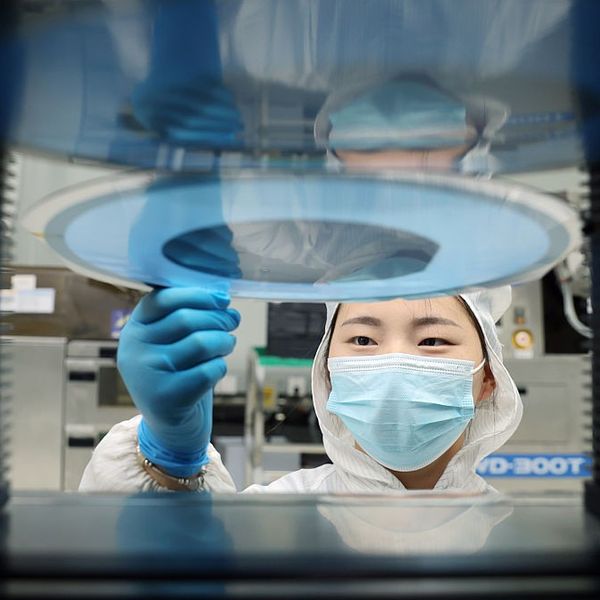As the U.S. counts votes in the presidential election, The Cipher Brief is focusing on Taiwan and its near-term future amid a flurry of activity by both China and the U.S.
As China flaunts a more aggressive approach to reunification, the U.S. has honored its commitment to provide Taiwan with the resources necessary to defend itself from an unwelcome invasion.
Earlier this week, The Cipher Brief focused on where Taiwan’s military build-up is headed, and today and tomorrow, we are focused on the reasons why China might find this to be a good time to push boundaries, as well as a focus on Taiwan’s economy and its strategic role in the world.
One of the products that Taiwan produces is high-end semiconductors and The Cipher Brief spoke with expert Jim Lewis on the strategic role that Taiwan plays in the manufacturing of critical components and where there may be risk and opportunity for future investment.
Lewis is Senior Vice President and Program Director at the Center for Strategic and International Studies (CSIS). Before joining CSIS, he worked at the Departments of State and Commerce. He was the advisor for the 2010, 2013 and 2015 United Nations Group of Governmental Experts on Information Security and has led a long-running Track II dialogue on cybersecurity with the China Institute of Contemporary International Relations.
The Cipher Brief: As a leader in high-end manufacturing of semiconductors, how important is Taiwan for the future of both the U.S. and China’s tech development?
Lewis: For the U.S., Taiwan could be replaced. The thing to look at is the number and kind of labs in the US, spending on R&D, and global market share and in those, Taiwan’s important but it’s not critical.
The Cipher Brief: How do you see the balance of power evolving as it relates to the global supply chain for advanced semiconductors?
Lewis: China was on the same trajectory as Japan and Korea in building its indigenous chip industry, but U.S. actions have slowed that down. China’s behavior has raised concerns around the work. Their intent is to drive western companies out of business. The Koreans and the Japanese know this, as do the Americans. China will become a competitor, but they may not be a part of the larger chip ecosystem, which means a bifurcation that will keep China in second place for a long time.
The Cipher Brief: How critical is Taiwan’s role in the manufacturing of semiconductors to the United States’ ability to maintain its qualitative military advantage in the future?
Lewis: Taiwan is critical for some major U.S. companies' business models, but the chips it makes are not critical for the military. China gains more than we would lose if it took over Taiwan.
The Cipher Brief: Is enough attention being paid to China’s push for tech independence?
Lewis: There’s a lot of concern about China’s push for technological independence, but that concern hasn’t been matched with money. We need to spend more on R&D, and on our STEM workforce. These are the things that we did in the last global conflict, but we haven’t restarted those kinds of programs. We can’t expect to compete if China outspends us.
The Cipher Brief: What would be the significance of China implementing export controls on rare earth minerals?
Lewis: China is going to play around with export controls and that will be an issue, but rare earth minerals is not a choke point. China dominates the market now because it’s a very dirty industry, but these minerals are all over the planet, a lot of other places that have them, but they just don’t want to take on the pollution costs. If China imposes export controls, other companies will enter the market.
The Cipher Brief: What events could prove disruptive for the future of advanced semiconductors?
Lewis: The biggest threat to the development of advanced semiconductors is the U.S. slowing down its investment in science and R&D. This is a science intensive industry that requires research in math, materials, and physics. The side with the most physicists has an advantage. Part of that is immigration. We need to keep the best talent flowing to the U.S., by not closing our borders.
The Cipher Brief: What worries you the most in terms of the future of digital infrastructure security?
Lewis: The biggest problem with digital infrastructure security isn’t a supply chain problem, it’s the fact that we have a powerful, well-resourced opponent who feel like it’s an open space where they can do whatever they want without any risk of consequence. It’s like the oceans in the 17th century, no rules and no penalties. That’s the biggest threat right now.
Read more expert-driven national security insight, perspective and analysis in The Cipher Brief















